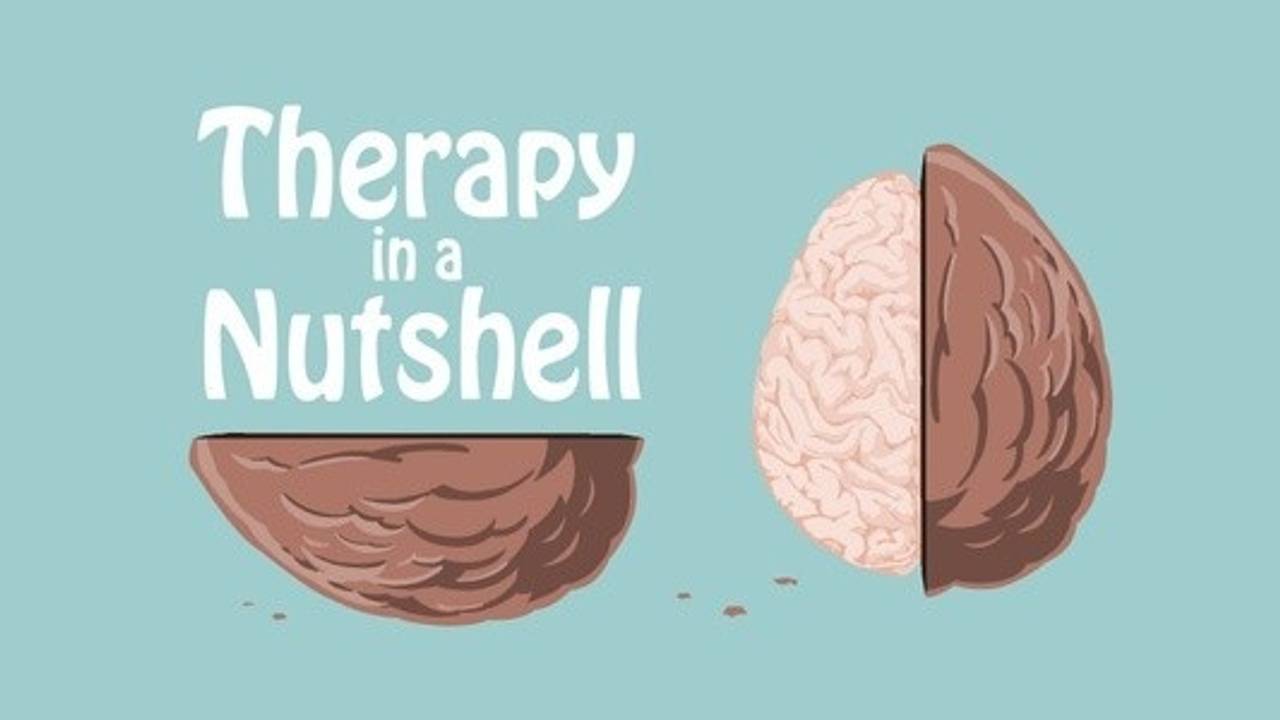Counselling is a talking therapy that involves a trained therapist listening to you and helping you find ways to deal with emotional issues.
Sometimes the term “counselling” is used to refer to talking therapies in general, but counselling is also a type of therapy in its own right.
What can counselling help with?
Counselling can help you cope with:
- a mental health condition, such as depression, anxiety or an eating disorder
- an upsetting physical health condition, such as infertility
- a difficult life event, such as a bereavement, a relationship breakdown or work-related stress
- difficult emotions – for example, low self-esteem or anger
- other issues, such as sexual identity
What to expect from counselling
At your appointment, you’ll be encouraged to talk about your feelings and emotions with a trained therapist, who’ll listen and support you without judging or criticising.
The therapist can help you gain a better understanding of your feelings and thought processes, and find your own solutions to problems. But they will not usually give advice or tell you what to do.
Counselling can take place:
- face to face
- in a group
- over the phone
- by email
- online through live chat services (learn more about online tools for mental health)
You may be offered a single session of counselling, a short course of sessions over a few weeks or months, or a longer course that lasts for several months or years.
It can take a number of sessions before you start to see progress, but you should gradually start to feel better with the help and support of your therapist.
Can you get free counselling on the NHS?
You can get free psychological therapies, including counselling for depression, on the NHS.
You do not need a referral from a GP.
You can refer yourself directly to a psychological therapies service.
Find a psychological therapies service in your area
Or you can get a referral from a GP if you prefer.
Find out more about free psychological therapies on the NHS
Private counselling
If you decide to pay to see a private therapist, make sure they’re qualified and you feel comfortable with them.
The cost of private counselling can vary depending on where you live, with a session costing anywhere between £10 and £70.
Many private therapists offer an initial free session and lower rates for students, job seekers and those on low wages.
You should ask about charges and agree a price before starting a course of counselling.
Charities and voluntary organisations
Some charities and voluntary organisations also offer counselling. These organisations usually specialise in a particular area, such as couples counselling, bereavement or family guidance.
You do not need a referral from a GP for an appointment for these services, but you may have to pay a fee to cover the cost of your sessions.
Charities that may offer counselling include:
- Cruse Bereavement Care – for bereavement advice and support
- Rape Crisis England & Wales – for women and girls who have been raped or sexually abused
- Relate – for relationship advice and counselling
- Samaritans – for people to talk about whatever’s troubling them at any time
- Victim Support – for victims and witnesses of crime
You may also be able to access support groups through your local community, church or social services.
Finding a qualified therapist
As counselling involves talking about sensitive issues and revealing personal thoughts and feelings, your counsellor should be experienced and professionally qualified.
Reputable therapists will be registered with a professional organisation that’s been accredited by the Professional Standards Authority (PSA). This means they have met the PSA’s required professional standards to practise.
You can find a qualified therapist in 3 simple steps on the PSA website
Other talking therapies
As well as counselling, there are many other types of psychological therapies (or talking therapies) that involve talking to a therapist about your feelings or problems.
Read more about other talking therapies and how they can help
Video: Psychological therapies for stress, anxiety and depression
Animated video explaining self-referral to psychological therapies services for stress, anxiety or depression.
Counsellor
Counsellors work with clients experiencing a wide range of emotional and psychological difficulties to help them bring about effective change and/or enhance their wellbeing.
Clients could have issues such as depression, anxiety, stress, loss and relationship difficulties that are affecting their ability to manage life.

Working life
You’ll hold sessions with individuals and groups in a safe and confidential environment. You’ll encourage them to look at their choices and find their own way to make a positive change in their life. Some counsellors specialise in working with particular difficulties such as depression, bereavement, loss or addictions. Others may work with particular groups such as children and young people.
You could work in a wide range of contexts and at different levels. Within the NHS, most counsellors work in Improving Access to Psychological Therapy (IAPT) services. Here, experienced counsellors with specific accreditations undertake training to deliver forms of counselling and psychotherapy recommended for depression such as counselling for depression, interpersonal psychotherapy or dynamic interpersonal therapy.
Some counsellors specialise in working with particular difficulties such as depression, bereavement, loss or addictions.
Others who work in NHS-funded services may:
- provide help, care and support to patients with cancer and their families
- work with individuals who have drug or alcohol-related problems
- help individuals understand and deal with genetic disorders
- provide counselling and support for families with an unplanned pregnancy
Your role will be to build a relationship with your clients. You’ll do this by:
- agreeing with them what will be discussed
- encouraging them to talk about their feelings
- listening carefully, asking questions and checking that you understand a client’s situation
- empathising with the client’s issues, but challenging them when necessary
- helping clients to see things more clearly or in a different way
Where will I work?
You could work in various locations such as community centres, GP surgeries, hospitals, schools or advice centres. You may also counsel people over the phone or by video call.
Entry requirements and training
To work in the NHS as a counsellor, as a minimum you will need to be registered on a counselling or psychotherapy register accredited by the Professional Standards Authority (PSA). Some services, such as IAPT services, also require additional levels of accreditation and that you undertake additional training in a particular therapy delivered by the service. See the IAPT Manual for details.
There are many different types and levels of counselling training available including at diploma, degree and postgraduate level. Some are available on a part-time basis, others full-time. Many, but not all, lead to registration. Visit the Professional Standards Authority website for information about accredited counselling registers.
For some counselling roles, employers may also ask for a clinical/professional qualification, such as being a registered nurse, occupational therapist or social worker. Or you may need a scientific background for some roles in genomic counselling, for instance.
Each employer will indicate their individual requirements so make sure to check the person specification for the role.
Must-have skills
You’ll need:
- to be able to make people feel relaxed
- excellent communication skills
- the ability to positively challenge people
- to be patient, tolerant, and sensitive
- to be empathetic and non-judgmental
- self-awareness and the ability to examine your own thoughts and values
Experience or skills in a particular area may also be required, such as the ability to speak in multiple languages or working in mental health.
One of the key objectives of counselling and psychotherapy is to help you gain a better understanding of the issues that are troubling you.
Therapy can help you work out new ways of approaching situations that you find difficult, as well as suggesting new methods to help you cope.
Developing a trusting relationship with your therapist is very important, and will help you be able to talk about long-standing problems. However, this can take time.
Depending on the type of therapy you have and the reason you’re having it, your treatment may need to last several months or, in some cases, years.
Types of counselling and psychotherapy
There are many different therapies. The type used will depend on your personal needs and which method your therapist thinks will be most helpful for resolving your issues.
Some of the main types of therapy are:
Psychodynamic (psychoanalytic) psychotherapy
A psychoanalytic therapist will encourage you to say whatever is going through your mind. This will help you become aware of hidden meanings or patterns in what you do or say that may be contributing to your problems.
Art, music and movement therapies often use similar methods to psychodynamic therapy, but encourage you to express yourself and communicate in other ways as well as talking. Even young children can take part – this is known as play therapy. You don’t need to have musical or technical skills for this type of therapy to be successful.
Cognitive behavioural therapy
Cognitive behavioural therapy (CBT) is a treatment based on a combination of cognitive therapy and behavioural psychotherapy.
Cognitive therapy explores ways your thoughts and beliefs may be causing emotional problems. Your therapist will discuss these issues with you so you can try to develop more helpful ways of thinking to allow you to overcome your problems.
Behavioural psychotherapy involves finding ways to help you change the way you act. It’s often used to overcome a specific fear or phobia by encouraging you to gradually face these fears and help you relax and feel comfortable as you do it.
During CBT, you and your therapist agree on tasks for you to do in between sessions. This will help you deal with problems yourself so you no longer need therapy.
CBT is usually aimed at a specific problem and the courses are often brief, typically involving 6 to 20 sessions.
Cognitive analytical therapy
During early sessions of cognitive analytical therapy (CAT), you’ll discuss events and experiences from your past to help you understand why you feel, think and behave the way you do now.
After the first few sessions, your therapist will write down what you’ve discussed on paper, and will work with you to map out problem patterns that have emerged to help you understand how these problems occurred.
Your therapist will use this to help you figure out ways of changing these problem patterns. They may suggest using diaries and progress charts to help you develop skills you can use to continue improving after the therapy sessions have finished.
Like CBT, a course of CAT is often brief. It may involve about 16 sessions.
Humanistic therapies
Humanistic therapies encourage you to explore how you think about yourself and recognise your strengths. The aim is to help you think about yourself more positively and improve your self-awareness.
There are a several types of humanistic therapies.
Person-centred counselling aims to create a non-judgmental environment where you can feel comfortable talking about yourself and are able to see that you have the ability to change. Your therapist will try to look at your experiences from your point of view.
Gestalt therapy takes a holistic approach, focusing on your experiences, thoughts, feelings and actions to help improve your self-awareness. This type of therapy often involves activities such as writing or role-playing.
Transactional analysis aims to explore how the problems in your life may have been shaped by decisions and teachings from childhood. You’ll work with your therapist to help you find ways to break away from these unconscious repetitive patterns of thinking and behaving.
Transpersonal psychology encourages you to explore who you really are as a person. It often involves using techniques such as meditation and visualisation.
Existential therapy aims to help increase your self-awareness and make sense of your existence. Existential therapy is not too concerned with your past, but instead focuses on the choices to be made in the present and future.
The Counselling Directory website has more information about the different types of humanistic therapies.
Interpersonal psychotherapy
Interpersonal psychotherapy (IPT) has been shown to be particularly effective in treating depression.
Your therapist will be interested in the link between your relationships with others and your emotional problems. They will help you develop new approaches to dealing with interpersonal difficulties to help improve your mental health.
IPT usually involves about 12 to 16 sessions.
Family and couple (systemic) therapy
Family therapy focuses on family relationships, such as marriage, and encourages everyone within the family or relationship to work together to fix problems.
The therapist encourages group discussions or exercises that involve everyone, and promotes a healthy family unit as a way of improving mental health.
In some cases, there may be more than one therapist involved to make sure everyone involved in the therapy has their say.



